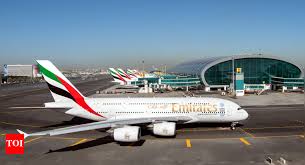Overview of Recent Emirates Flight Cancellations

Introduction
As the aviation industry continues to recover from the impacts of the COVID-19 pandemic, Emirates Airlines recently faced a significant surge in flight cancellations, affecting thousands of passengers globally. This situation has highlighted the challenges airlines face in managing schedules while ensuring compliance with operational and regulatory requirements. Understanding the reasons behind these cancellations can assist travellers in making informed decisions about their travel plans.
Reasons Behind the Cancellations
In late September 2023 and early October 2023, Emirates announced that a number of flights had been cancelled due to a combination of factors. The most pressing of these included adverse weather conditions, which caused delays at several international airports, and unforeseen technical issues with some aircraft in their fleet. Additionally, a shortage of crew, exacerbated by ongoing labour market fluctuations, has added to the airline’s operational challenges.
Moreover, Emirates has also cited increased demand for air travel as an unexpected hurdle. With travel patterns shifting post-pandemic, the surge in bookings has put additional strain on their existing resources, leading to prioritisation of some flights over others.
Impact on Passengers
The flight cancellations have spurred frustration among passengers, many of whom faced last-minute alerts, rescheduling nightmares, and in some cases, significant financial losses due to non-refundable tickets. Emirates has implemented measures to mitigate the inconvenience, providing affected travellers with options for rebooking and offering refunds where applicable. The customer service response has been swift, but reports suggest that long wait times were common, causing further dissatisfaction among passengers impacted by the cancellations.
Future Outlook
Looking ahead, Emirates is working to enhance its operational resilience. The airline has expressed commitment to increasing its workforce to better handle the uptick in travel as well as improve its technical maintenance capacity. Industry analysts predict that while stabilisation of flight schedules may take time, Emirates is likely to recover well, given its strong demand and extensive network.
Conclusion
The recent flight cancellations experienced by Emirates serve as a reminder of the complexities involved in airline operations during unpredictable times. Travellers planning to fly with Emirates in the coming months should stay informed about the airline’s updates, maintain flexibility in their travel arrangements, and consider travel insurance to safeguard against potential disruptions. The situation demonstrates the importance of adaptive strategies within the aviation sector as it navigates recovery in a rapidly evolving travel landscape.







